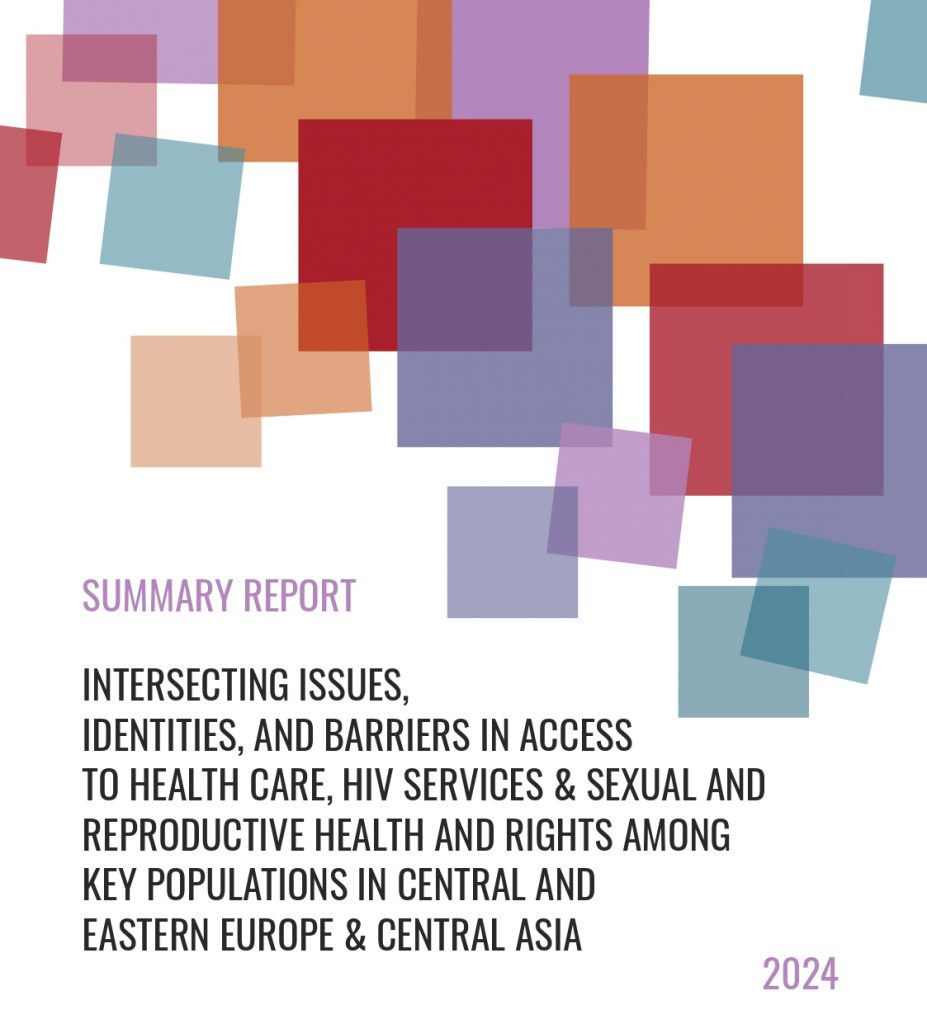Intersecting issues, identities and barriers in access to healthcare, HIV services & sexual and reproductive health and rights among key populations in Central and Eastern Europe & Central Asia
This briefing paper explores the impact of intersecting identities—such as LGBT, people who use drugs (PWUD), sex workers (SW), and people living with HIV (PLHIV)—on health access, agency, and social justice in the context of structural inequalities and stigma. Using the framework of intersectionality, it examines how overlapping identities shape lived experiences of discrimination, influencing mental and physical health outcomes and access to healthcare services. The paper is based on cross-regional consultations conducted across 14 countries in Central and Eastern Europe and Central Asia (CEECA), including surveys and focus group discussions with 103 individuals with multiple intersecting identities.
The insights gathered aim to deepen understanding of intersectional stigma and discrimination while offering practical recommendations to improve service provision, rights-based programming, and advocacy efforts. By addressing the unique vulnerabilities and strengths of marginalized communities, this paper provides actionable guidance for healthcare providers, advocates, and policymakers to design inclusive interventions that mitigate stigma and promote equitable access to health and social support systems.
